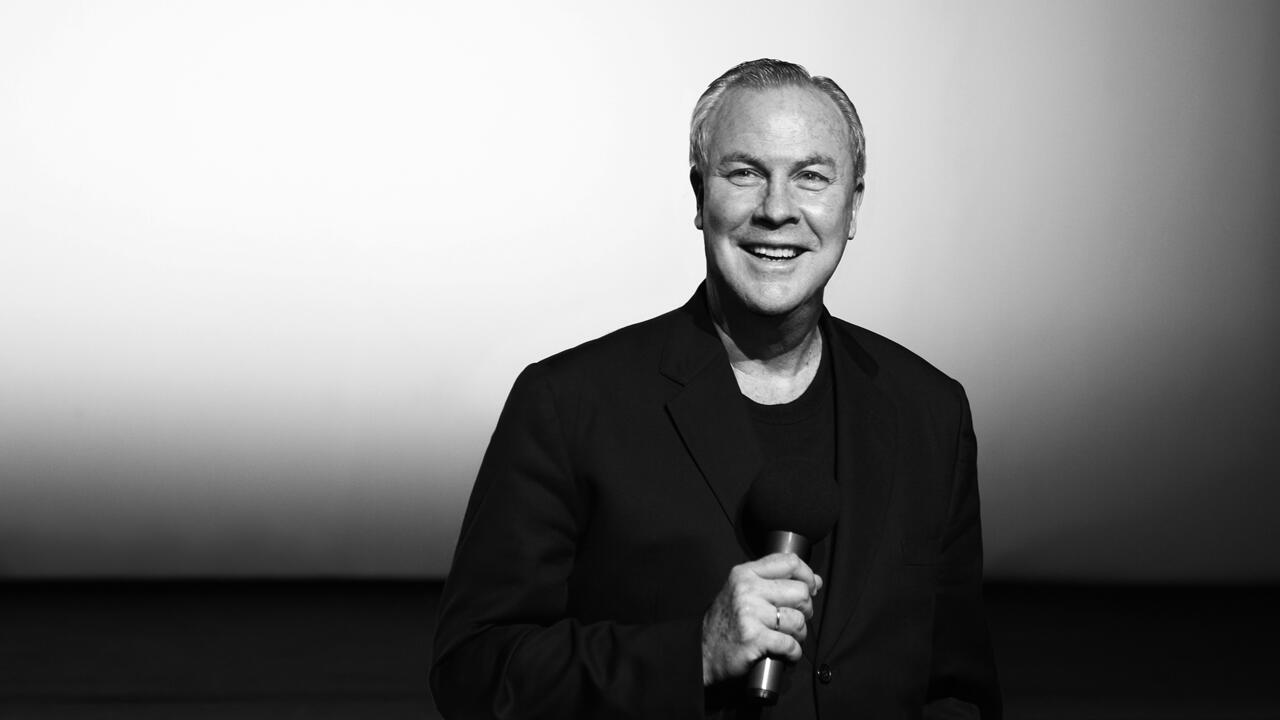Searching for the Revolutionary Ali Sultan Issa
How a filmmaker’s research into historic Afro-Asian solidarities led him to Zanzibar in search of a little-known political icon
How a filmmaker’s research into historic Afro-Asian solidarities led him to Zanzibar in search of a little-known political icon

As our common understanding of international borders fundamentally shifted following the COVID-19 pandemic and the invasion of Ukraine, I found myself becoming curious about previous instances of significant geopolitical realignment. I began by investigating the Cold War and the fall of the Soviet Union – which prompted American political theorist Francis Fukuyama to famously question, per the title of his 1989 essay, whether this might even signal ‘The End of History?’ But despite the popularity of this phrase, Fukuyama’s conclusion was ambiguous.
As part of this research, I stumbled upon G. Thomas Burgess’s 2010 essay ‘Mao in Zanzibar: Nationalism, Discipline and the (De)Construction of Afro-Asian Solidarities’, which examined a deep yet idiosyncratic connection between post-revolutionary Zanzibar and the People’s Republic of China. As Burgess writes, China became ‘widely regarded as the model for the islands’ future’. One of the essay’s protagonists was Ali Sultan Issa, a Zanzibari revolutionary whose life story offered a thread through resurgent Afro-Asian political imaginaries of the Cold War and the Non-Aligned Movement of the 1960s.

Burgess had spent hundreds of hours with Issa over the years, eventually authoring his memoirs. Issa first travelled to China in 1960, embarking on an uneasy romance between Afrofuturism and Sinofuturism, with which he sought to remake this tiny archipelago in the Indian Ocean in the image of a burgeoning Communist giant. I was immediately hooked. In Shanghai, I found a 1960 edition of The People’s Daily newspaper containing Issa’s address to an international workers’ summit in Beijing, in which he linked the Zanzibari independence struggle with that of China’s 1949 Communist Revolution. I reached out to Burgess, who was kind enough to give me his time and to lead me to interview Issa’s family and friends, the documents of which became an essay-cum-documentary film called The Tourist (2023).
As it turned out, Burgess would soon be returning to Zanzibar for a few days to attend a conference, and I flew over to meet him. My only other contact in Zanzibar was a tour guide called Elvis, a friend of a friend. With Issa’s memoirs in hand and not much else, I landed in Zanzibar one June afternoon in 2023, met up with Elvis and, by evening, was wandering through Issa’s old neighbourhoods with Burgess as my guide.

In the end, I spent a month in Zanzibar, occasionally taking the ferry to Dar es Salaam, trying to find traces of Issa’s revolutionary footsteps amongst the hotels and gift shops of Stone Town, where he lived for much of his life. Zanzibar is an eclectic place, now dotted with beachside resorts that have been frequented largely by Italians and Germans since the early 1990s. Its architecture and food culture tell the story of its rich mix of African, Arab and Indian heritage as a centuries-old trading post on the Indian Ocean and, at one time, the main port for the slave trade in East Africa to the Arabian Gulf.
Of Issa’s revolutionary internationalism, only a few fragments remained: an active Chinese medical centre, emblazoned with decades-old, red-and-yellow wooden characters; a sports stadium named after Mao Zedong; and a vast, imposing stretch of East German-style plattenbau apartment blocks. In the centre of the town, there is a photography shop run by an elderly Indian man named Rohit Oza, whose father was the island’s official photographer. There, I discovered an original image of Issa, a small blur of a face in a football team line-up, as well as photographs Oza’s father had taken of Chinese Premier Zhou Enlai during his visit to the island, shortly after the 1964 Zanzibar Revolution.
I spent a month trying to find traces of Issa’s revolutionary footsteps.
The international climate of the 1950s and ’60s was marked by exuberant nation-building, as dozens of new sovereignties claimed their independence from the empires of Europe and Japan. The lynchpin of these emergent anti-colonial constellations was the 1955 Afro-Asian Conference in Bandung, where 29 countries participated in an unprecedented gathering which represented more than half of the global population. Its key leaders – from Egypt, India, Indonesia and China – vied for control over nations that affiliated themselves neither with the US nor Communism, a bloc which would later reconvene as the Non-Aligned Movement.
Born in 1932 on the Zanzibari island of Pemba, Issa watched this situation develop closely. By his late teens, he had already embarked on a remarkably cosmopolitan course, leaving Zanzibar for Calcutta as a merchant seaman, before stowing away to ports as far-flung as Kawasaki and Vancouver, where he first learned about Communism from a Spanish sailor. As we wandered around Issa’s old haunts in Stone Town, Burgess described him to me as a raconteur who took great pleasure in recounting his exploits, having lost none of his wit and bravado, nor his love of drink and women.

Like many of his comrades, Issa began his political training in London at the Communist Party of Great Britain, the nation of which Zanzibar had been a protectorate since 1890. Issa returned to his homeland in the late 1950s to begin his political activities in earnest. He became friends with the Castros in Cuba and had an audience with Mao in China, energetically connecting Zanzibar to international socialism with patronage from the Soviet bloc. A fervent modernist, Issa hoped to take his post-revolutionary nation out of the shackles of colonization and the strictures of Islam towards Communism.
The ripples made by Issa and his comrades reverberated through the course of Afro-Chinese relations.
The reality landed far from the dream. The revolution erupted violently in January 1964, owing more to deep ethnic tensions between Zanzibar’s Black African and minority ruling Arab populations than to ideology. Issa joined the new administration of President Abeid Karume, but the socialists were soon sidelined. As the regime grew increasingly corrupt and dictatorial, Issa was jailed and subjected to prolonged torture through the 1970s, narrowly avoiding a death sentence. (The young woman he met eyes with while on the dock during the public trial would become his third wife, Aishe.) By the time he was released, he had lost his political ambitions, but there is another characteristically flamboyant, if bittersweet, final flourish to his story.

Likely with the help of his American friend Frank Carlucci – a CIA agent who rose to become US Secretary of Defence in the late 1980s under President Ronald Reagan – Issa courted Italian investors to establish the first-ever resort hotel in Zanzibar, the Mawimbini, setting the island on its path to becoming the tourist paradise it is today. When I visited Issa’s youngest daughter, Natasha, in Dar es Salaam, she described this period of his life as his ‘second revolution’. My guide Elvis, who was a teenager when the hotel opened, recalled that everyone wanted to work there because it was welcoming Zanzibar’s first foreign tourists. (The Mawimbini also holds a certain notoriety amongst locals as the place where the first Zanzibari porn film was made.) Later on, with the help of Issa’s third wife, Aishe, Burgess and I visited the site of the Mawimbini – now a strange, tropical ruin, its faux-classical friezes and funky Italian signage overgrown with vines, having fallen on hard times following the 2008 economic crisis. For the film, I intercut my own footage of the hotel and island with home videos shot by raucous Italian holidaymakers at the Mawimbini which I discovered on YouTube. I decided to name the film The Tourist for a series of overlapping connotations: Issa, who travelled the world in the hope of making Zanzibar ‘the Cuba of Africa’; the tourist economy which turned this initial dream on its head; and myself, who came looking for clues to the story of an unrealized nation.

Yet, although socialist Zanzibar didn’t happen, the ripples made by Issa and his comrades reverberated through the course of Afro-Chinese relations. They led to the construction of the Tazara Railway (1970–75) between Tanzania and Zambia – a grand gesture of anti-colonial solidarity that was China’s biggest investment on the continent until the Belt and Road Initiative (2013–ongoing), connecting Asia, Europe and Africa by road and sea. Burgess recalled that, in his twilight years as a hotelier, Issa could be found singing revolutionary songs in Chinese, Russian and Spanish to his bemused bar staff.
A minor but charismatic figure in the global realignments of the 20th century, Issa surfed the waves of history from his small Indian Ocean island. Today, those waves seem to be on the rise again. Unlike the optimism of the Bandung moment, however, contemporary geopolitics are informed more by (rightful) grievance than by solidarity. A glance at the votes cast by UN members these past few months demonstrates starkly how isolated the nations of the ‘US-led West’ have become as they continue to endorse Israel’s ruthless bombardment of Gaza – actions which have led the Republic of South Africa to allege at the International Court of Justice that Israel has violated the Genocide Convention. As Colombian President Gustavo Petro noted on X in October last year: ‘The right-wing forces in the [Global] South use violence; they destroy democracy; they feel, by the North, legitimized to do so.’ In stark contrast to Issa’s life of exemplary cosmopolitanism – as a subject of a world in flux, rather than of an ethnicity or a nation – we now seem to be witnessing cosmopolitanism at its basest, where belonging to the world means only to be at its mercy.
This article first appeared in frieze issue 243 with the headline ‘The Curious Cosmopolitanism of Ali Sultan Issa’
Main image: Gary Zhexi Zhang, The Tourist, 2023, film still. Courtesy: the artist

























